Column 281: MAHA, the final word (for now); Concert for Equality sched released…
by Tim McMahan, Lazy-i.com
And now, the final word on the 2010 MAHA Music Festival. Even though it was only a few days ago, it already seems like it was last year, especially with the next big music event looming on the horizon.
Column 281: Review: MAHA Music Festival
Better the second time ’round.
Year two of the MAHA Music Festival already was a success by the time the first band took the main stage, even though things had gotten off to a rocky start.
A giant bitch of a storm named Bonnie had taken its toll on the airlines. Main stage artist Ben Kweller had tweeted at 2 a.m. Saturday that his flight had been canceled, causing a loud, low groan from the collective mouths of everyone involved with the festival. Cell phones lit up like hand grenades, and Kweller found himself driving by car from one airport to another, desperately trying to find a connection to Omaha. He made it, as did fellow main-stager Superchunk, who also got caught in the same shitstorm of flight cancellations.
As a result, the entire MAHA program was pushed back by more than an hour. City officials gave an OK to let the party run ’til midnight. Kweller and Old 97’s swapped stage times and everybody won.
When I arrived at around 2:30, It’s True already was on stage, playing to a smallish crowd that was downright monstrous compared to last year’s tiny gathering for Appleseed Cast’s afternoon set. It was the second to last stage appearance by It’s True, the band on the verge of a nervous breakdown only a few months after releasing its debut full-length and just as a nation was beginning to take notice. No one knows for sure why frontman Adam Hawkins, who now lives in central Iowa, wanted out, and no one had the courage to ask.
MAHA limbo contest winner Betsy Wells was up next on the festival’s pseudo “second stage,” which was nothing more than a stack of amps set up on a wall adjacent to the main stage. After last year’s debacle, there was talk of moving the second stage to somewhere more “fan friendly,” so that people could watch bands without having to stare into a burning hot sun. But that never happened. A bigger problem: The second stage sounded louder than the main stage, with the overdriven stack at the perfect height to shear the eardrums off anyone stupid enough to stand in front of it without earplugs. A couple girls in hot pants leaned over and held their ears as they shuffled away in their flip-flops.
I didn’t pay much attention to Old 97’s, who sounds like a thousand other bands that play that style of easy-to-ignore alt-country-pop. But isn’t that the way with festivals? You can’t love them all. The hippies dancing jigs to Old 97’s were going to be making phone calls during Superchunk.
Landing on the Moon, another MAHA battle-of-the-bands winner, played a solid set on the ear-splitter stage. Then things began to really heat up. MAHA organizers trotted out a grinning Mayor Jim Suttle to declare, “This is what we mean by quality of life in Omaha. Music tonight, tomorrow, forever!” The crowd reacted with a smattering of disinterested applause, only to lock in when Ben Kweller was introduced.
Wearing crazy-clown red pants and a Panama hat, a sleep-deprived Kweller looked like Flying Tomato Shaun White as he launched into a set of singer/songwriter Americana backed by drums and bass. The stage crowd — probably the same people there to see Old 97’s — dug his grinning, folky hick-rock.
By now the crowd had ballooned to a few thousand, and the Lewis and Clark Landing was beginning to look like a music festival. Cheap fold-out lawn chairs formed wall fortresses around dirty tasseled stadium blankets. A walk from the entrance to the stage meant finding your way through the maze of encampments without being scowled at for stepping on someone’s shit. By the end of the day, the little tent city near the stage would be pushed aside as the crowd took over.
The Mynabirds, who along with Satchel Grande managed to avoid humiliating themselves at a “contest” to get their second stage slot, played a confident set while the sun blazed over cute frontwoman Laura Burhenn’s shoulder.
The last of the afternoon light was spent on Superchunk. I looked at my iPhone afterward for notes but didn’t find any — I had been too enraptured by the band. For me and the rest of the crowd in their 30s and 40s standing in front of the stage, Superchunk were conquering heroes playing for their first time in Nebraska. This was our Perfect Moment, and we were soaking it in.
Then, The Faint. Despite becoming their own tribute band these days, since they no longer write new music, their set was what festival goers will remember about MAHA II. The crowd was at its peak, and dancing — it was the kind of spectacle that MAHA organizers had dreamed of.
Headliner Spoon came on at 11 p.m. and never caught hold, but by then, it didn’t matter. MAHA already had gone into the books as a success. MAHA organizer Tre Breshear said scanned ticket attendance was just over 4,000, slightly below their target but a big improvement over year one.
In retrospect, this year’s main stage roster was a tip o’ the hat to ’90s-’00s indie — the kind of music that the organizers grew up listening to (presumably). Old ’97s, Superchunk, Spoon, The Faint, even Ben Kweller had his best music in the earlier half of the ’00s. The festival will garner a younger audience if it tries to book more up-and-coming acts next year, such as Sleigh Bells, MIA, Wavves, The National, Foals, Band of Horses, New Pornographers, along with the usual legacy acts. If they want to extend this event to two days, they’ll need to book a couple huge bands — one to anchor each day. And I mean Pixies/REM/Wilco huge. That’s pricey. And risky. There also are those who think the line-up should be more diverse stylewise. Bottom line: They’re never going to please everyone, and they’ll only fail if they try.
* * *
The schedule for Saturday’s Concert for Equality has been announced, but first, the news…
The Associated Press reported last night (right here) that the Fremont City Council voted unanimously to suspend a voter-approved ban on hiring and renting property to illegal immigrants. “The council also unanimously decided to hire Kansas-based attorney and law professor Kris Kobach, who drafted the ordinance and offered to represent Fremont for free to fight the lawsuits. Kobach also helped write Arizona’s new controversial immigration law,” the AP story said.
The story went on to say Fremont faces lawsuits from the American Civil Liberties Union and the Mexican American Legal Defense & Educational Fund, which both expected to ask a federal judge today to temporarily block the ban from taking effect. ACLU of Nebraska said it and the city will ask the judge to block the ordinance pending a final court resolution.
So despite the fact that the law has been suspended, the lawsuits will go on, which makes the Concert for Equality just as relevant from a fund-raising standpoint as ever. The court battle could drag on for years.
With that, here’s the schedule for Saturday’s concert, by way of One Percent Productions:
Outside:
Flowers Forever – 5:00-5:30
Vago – 5:45-6:15
The Envy Corps – 6:30-7:00
Bright Eyes – 7:15-8:00
Gillian Welch – 8:15-9:00
Cursive 9:15-10:00
Desaparecidos – 10:15-11:00Inside:
Fathr^ – 5:00-5:40
Simon Joyner – 6:00-6:40
The So-So Sailors – 7:00-7:40
Conchance – 8:00-8:40
David Dondero – 9:00-9:40
Closed from 10:00 – 11:00
Lullaby for the Working Class – 11:30-12:15
Hootenanny – 12:30-2:00
If there are any “special guests,” they’ll likely be showing up during the “Hootenanny” portion of the program. Rumors are rampant as to who those special guests would be. So… where do we park? I’ll pass on more info about the show as I get it.
* * *
Read Tim McMahan’s blog daily at Lazy-i.com — an online music magazine that includes feature interviews, reviews and news. The focus is on the national indie music scene with a special emphasis on the best original bands in the Omaha area. Copyright © 2010 Tim McMahan. All rights reserved.

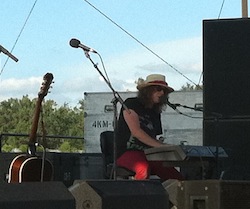
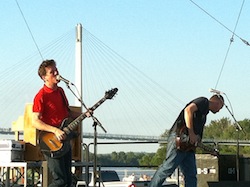
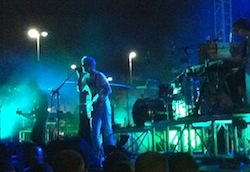

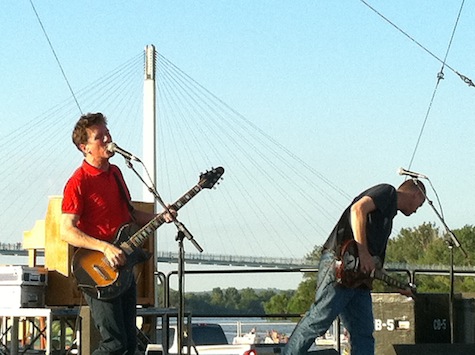
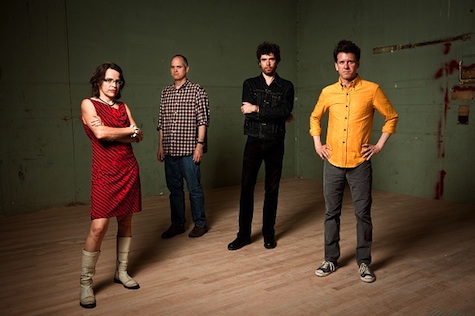
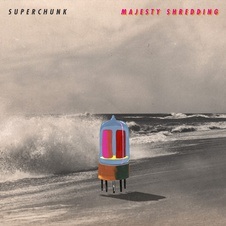
Recent Comments